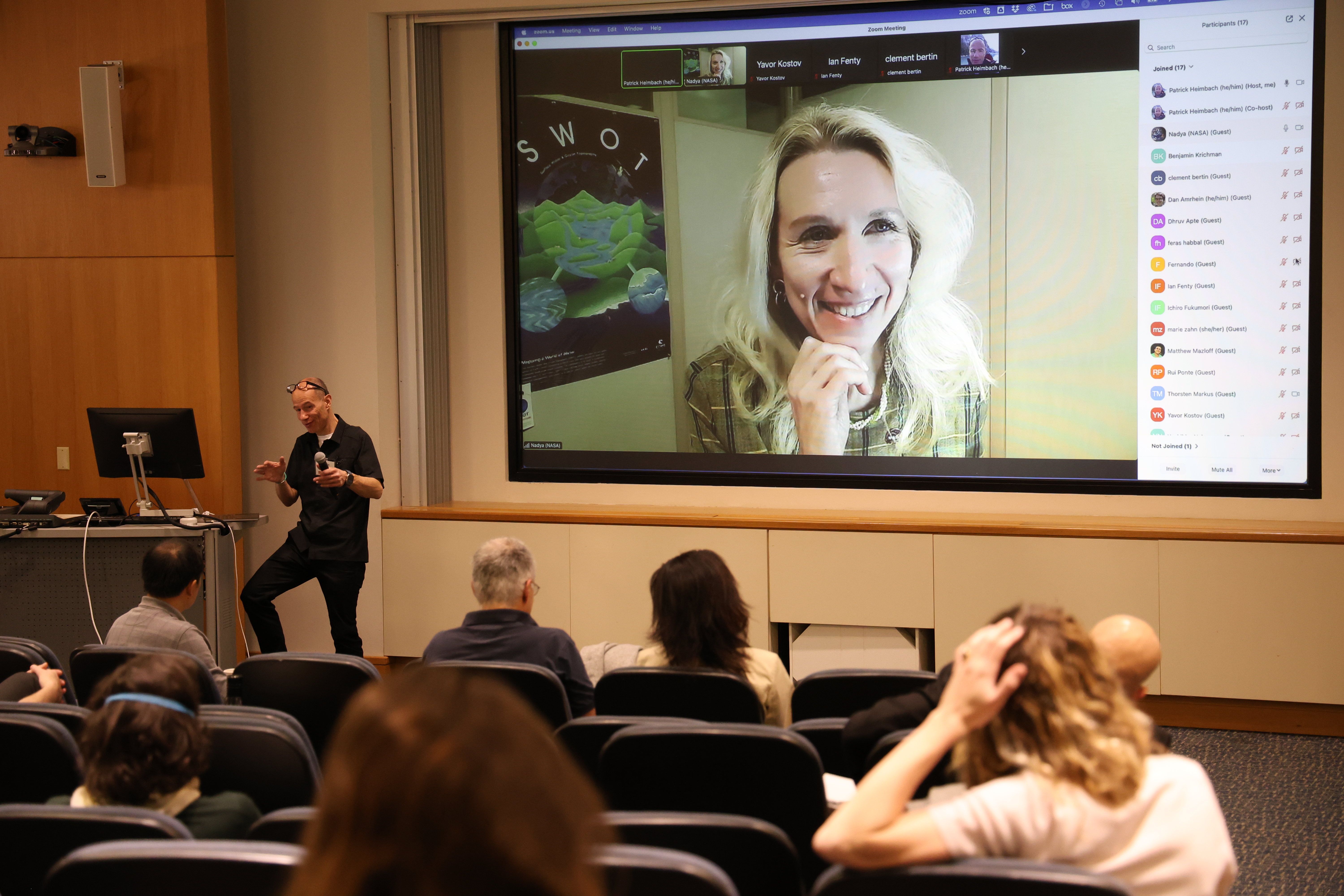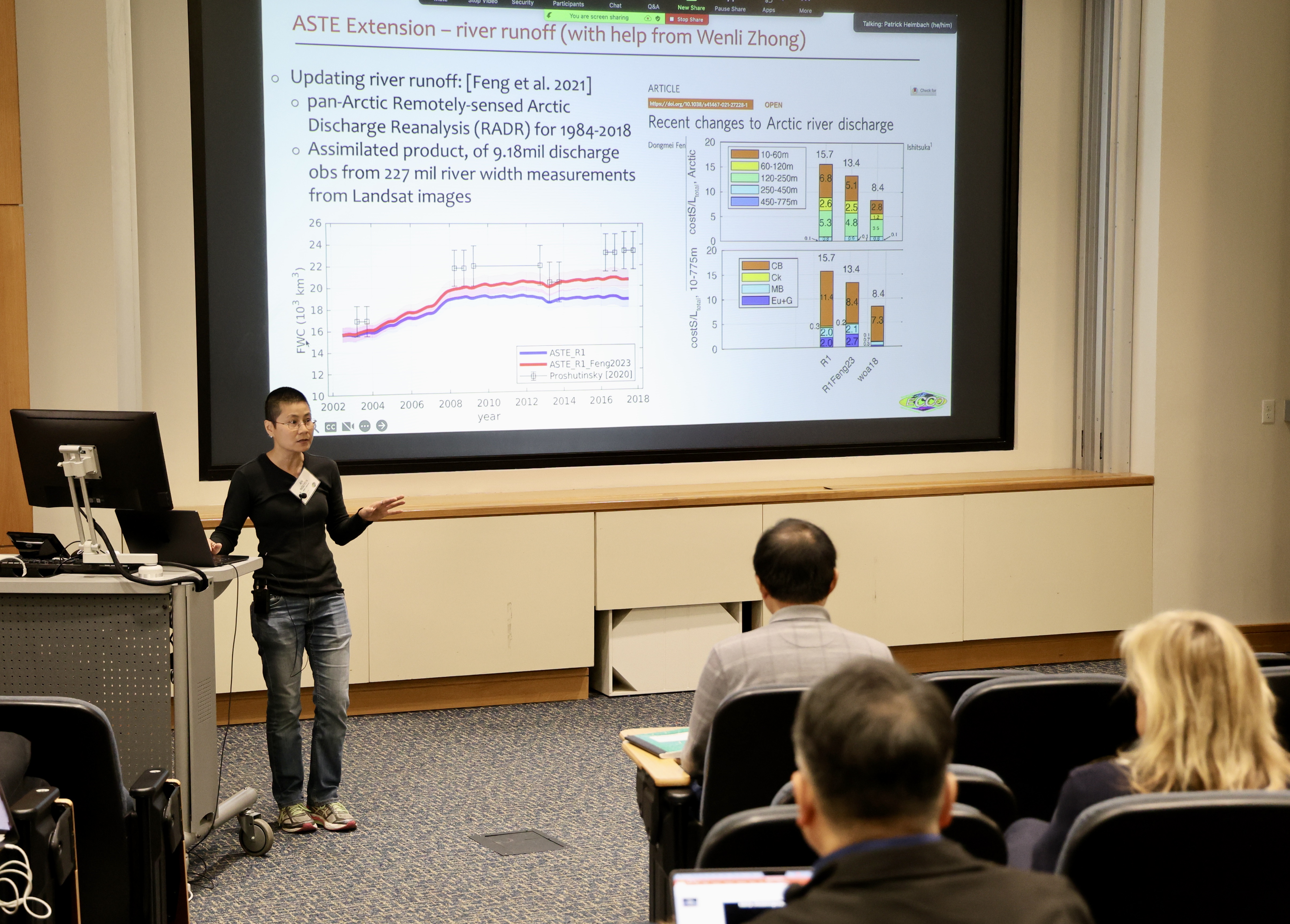The Estimating the Circulation and Climate of the Ocean (ECCO) consortium recently concluded its annual meeting, hosted by the Oden Institute for Computational Engineering and Sciences at The University of Texas at Austin. Leading experts, researchers, and students from multiple universities and government agencies convened from March 20 – 22, 2024, to explore the latest advancements in ocean modeling, data assimilation, and technology application in ocean science.
Renowned for its pioneering work, ECCO brings together researchers to produce accurate estimates of ocean circulation and its impact on global climate patterns. By integrating state-of-the-art ocean circulation models with vast global datasets, ECCO provides solutions that faithfully replicate real-world observations. With over a thousand publications to its credit, ECCO's contributions are instrumental in deciphering changes in the ocean, including phenomena like sea level rise, sea ice loss, El Niño and La Niña events, and the cycling of water and carbon.
ECCO is also leading NASA's open-source science commitment by making the state estimates and underlying computational codes easily accessible to the community.
The three-day event featured discussions on topics from ocean dynamics, high-resolution applications, to biogeochemistry and algorithm development.
Patrick Heimbach, chair of the ECCO Annual Meeting and Lead of the Computational Research in Ice and Ocean Systems (CRIOS) group at the Oden Institute, set the tone with a warm welcome, emphasizing the significance of collaborative efforts in advancing ocean science. The meeting kicked off with a deep dive into scientific applications, spanning topics from exchanges between the Arctic and the subpolar North Atlantic to the Atlantic Meridional Overturning Circulation (AMOC) and the intriguing influence of ocean eddies on the atmospheric water cycle. Presentations during these initial sessions illuminated the intricate relationship between oceanic processes and global climate patterns, setting the stage for the days ahead.
As the event progressed, focus shifted to algorithm and tool development, a crucial aspect in advancing our understanding of ocean dynamics and climate. The final day was dedicated to these discussions, where experts explored ways to enhance modeling capabilities and bridge research gaps. Topics ranged from model-observation comparisons to stochastic parameterization, with a particular emphasis on the development of tools like ECCO-Darwin and Oceananigans.

